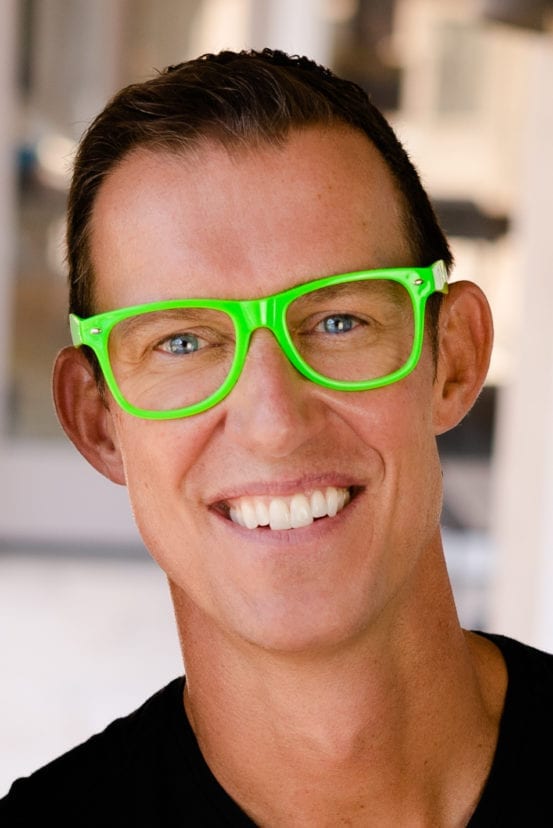Super U Podcast | Inspiration Waiting at the Bus Stop
Today, you’ll be hearing from the independent film industry’s favorite duo, The Duplass Brothers. Mark and Jay Duplass are known for their generosity, creativity, and transparency. Two undercover agents who successfully infiltrated a notoriously cutthroat and self-centered industry, Hollywood. Together, they broke into the business via a seven-minute short film they shot on their parents’ video camera, with a total production budget of $3 — the cost of the blank tape they purchased to shoot it. Erik, Mark, and Jay discuss allowing your work to speak for itself, embracing limits and constraints, inspiration waiting at the bus stop, the value of keeping a lot of irons in the fire, and hiring for personality over experience.
5x #1 Bestselling Author and Motivational Speaker Erik Qualman has performed in over 55 countries and reached over 50 million people this past decade. He was voted the 2nd Most Likable Author in the World behind Harry Potter’s J.K. Rowling. Qualman is also the inventor of the bestselling board game Kittycorn.
Need a sneak peek? Below are the main takeaways from the episode.
Super U Podcast | Inspiration Waiting at the Bus Stop
Tip #1
“You know, for us, we really didn’t make anything that we thought was really good until our mid to late 20s. And, you know, we got our butts kicked back and forth a million times, we never did any cold calling, but we definitely, you know, we were, honestly, we kind of just got knocked back into a place where it was like, alright, we’re just gonna make some $5 movies now, and we’re gonna see what happens and, and we ended up just getting one of those really cheap movies into Sundance. And people loved it. And we found that the best thing to do is just to make your stuff and make it as best as you can at the level that you can make it at. And it will speak for itself. It’s very hard to make something unique and new and good. And once you do that, we found that the doors open themselves for you. And people ask you to, you know, make more stuff. I mean, by the time we made three short films, Sundance was asking us repeatedly, when are you going to make a feature? And we were like, wow, we just got invited basically to make a feature because they wanted to see that from us. And you know, the industry was saying the same thing to you.”
Tip #2
“If that’s the history of my creative journey has been finding ways so that I am not floating in the sea of infinite possibility which is in my experience a paralyzing sea but working within limits and working within boxes you know has really helped me that’s what my room 104 show on HBO is all about like how many stories can you tell inside of a 400 square foot box that limit helps keep me creative and you know when I’m talking to people who are struggling right now or even people who haven’t really found their creative voice yet and are wondering what to do with themselves so you know, I I’m very encouraging of embracing limits and if you don’t have that many limits self-imposing them so that you can beat against those walls and find that as an inspiration to be creative. It’s really it really has worked for me and continues to work for me.”
Tip #3
“Tom Petty has this incredible quote where I says Jesus Christ, you look at your greatest hits record, you got like 25 Hits Songs, like how did you write all those amazing hit songs? What’s the formula, you know? And in his wonderful Tom Petty way, it’s just like, wow, I was at the bus stop, you know, like, What do you mean? It’s just like, well, how are you supposed to catch the bus if you don’t wait at the bus stop? And when he basically came to say, it’s just like, yeah, when people were out at parties and doing other things, whatever, like, I stayed close to my guitar, I kept it in my hand and I was ready for it when I came. And, you know, it doesn’t mean you can’t have a life but I think it means being open and being aware and being perceptive about what’s your special sauce, you know, because there really is something inside of everyone that like, only you’re able to tell that story in that special way.”
Tip #4
“I think that the best answer we can come up with is to keep a lot of irons in the fire. And it’s sort of like you play the numbers game a little bit. And it diminishes the rejections because you have some other things going on. But I also think you have to be smart and careful about how you put yourself out there. For instance, I am an actor, but I don’t go out and audition a lot because it just kills my spirit to do that, you know, and it’s really hard. And, you know, we could, if we wanted to engage weekly on these big writing assignments that are open for, for people to come in and say, Here’s my take on this job, I want to get this job. If you do that, you get rejected 49 out of 50 times and then the one that you do get means you’re doing really well. But that’s 49 rejections, you know, so we don’t engage in that process as well. So we just try to protect ourselves to a certain degree. And, you know, again, try to keep a couple of things going at once in case certain things burn out.”
Tip #5
“I found this out by accident, but I really believe in it now, I hire strictly on thought process and personality style. the skill set is not even anything I consider, in fact, I find hiring an experienced producer can be negative because the first thing they do is I’ve got my budgeting software and my scheduling software and we’re just like, wow, oh, you know, hiring the most brilliant inspired and nice loving, emotionally evolved people that I can, you can teach them all the other stuff in a week, you can’t teach any of that other stuff. So it’s not really anything new. But I find that often in the film business people really hire for credits. And I don’t believe in that and most importantly, I like to work with people who are young and excited and are willing to give me their best and I am willing to take their errors because of their lack of experience because it made up for and dedication and enthusiasm. So many times you’re on a film shoot put together a million dollar movie and they’re like, Dude, I think I can get you to know Bradford young to be our DP for this. And I’m like if you get Bradford young by chance to work at 1/50 of his rate. He’s going to be so goddamn miserable in this movie. And he’s going to want everything to go his way because he’s working at a reduced rate. Don’t do that to yourself. Hire the 26-year-old kid who shot up beautifully shorts and is ready for his step up and we’ll give you the world for it.”
Tip #6
“My brother and I, who, you know, obviously, our relationship is incredibly complex and deep collaboration. And it’s a wonderful and terrible thing. We talk a lot about what we are able to do with building blocks with each other because we do share the same creative brain most of the time. But every now and then you get an idea that is hard to explain, but it’s a feeling-based thing. And you cannot verbalize it well, and if you don’t verbalize it correctly, you will watch the eyes of the person you’re pitching it to and they won’t be excited and it will start to kill your own magic. So what I try to do in the early stages, before I can get it together in my mouth, I try to hold it in the dreamscape stage. And it’s a very important incubating stage for creative ideas in my opinion. And I’ve lost a lot of them because I took them out before they were ready to be birthed. And, then once you’ve kind of got it down to a place where you’re like, I know what this is, and I can verbalize it. Then I really, then I go to Jay and all my trusted collaborators and we start hammering it and trying to build the thing up. And if you find yourself truly exhausted after about two hours of talking about it usually means you’re trying too hard to make something live that can’t live in my experience, the ones that are ready to go, start to come very quickly and they will be rough-hewn, but they will make themselves known a little bit more quickly. So the long and the short of it for me is you know, that whole Billy Joel thing I never want to work that hard. Like if you are sweating a lot. There’s such a thing as too much elbow grease and you kind of let it go. And for me they always ended up going back into the pool, getting caught up in the chlorine and they come back to me a couple of years later and something else.”
Tip #7
“And what I have told my actors, and when I tell myself is, your job is not to be perfect. Or to nail anything your job is to be real, vulnerable, and emotional, and whatever comes to you at this moment, because if you’re doing that, it’s going to be profound. And so that level of disaggregation Hi, I have found in my directorial work to be the only thing that matters truly, and I let the script and the clothes in the vernacular in the dialogue dictate the character. But my goal is that all of the emotions are 100% pure and real to who I am.”
Click here to subscribe and listen to the full episode.
Connect with Jay & Mark Duplass
Instagram: @jayduplass & @markduplass
Twitter: @MarkDuplass

To ensure you don’t miss future episodes, subscribe to our podcast by clicking here >> Super U Podcast. We hope these tips help unlock and unleash your inner superpower!
The Super U Podcast is hosted by #1 bestselling author and Motivational Speaker Erik Qualman.





